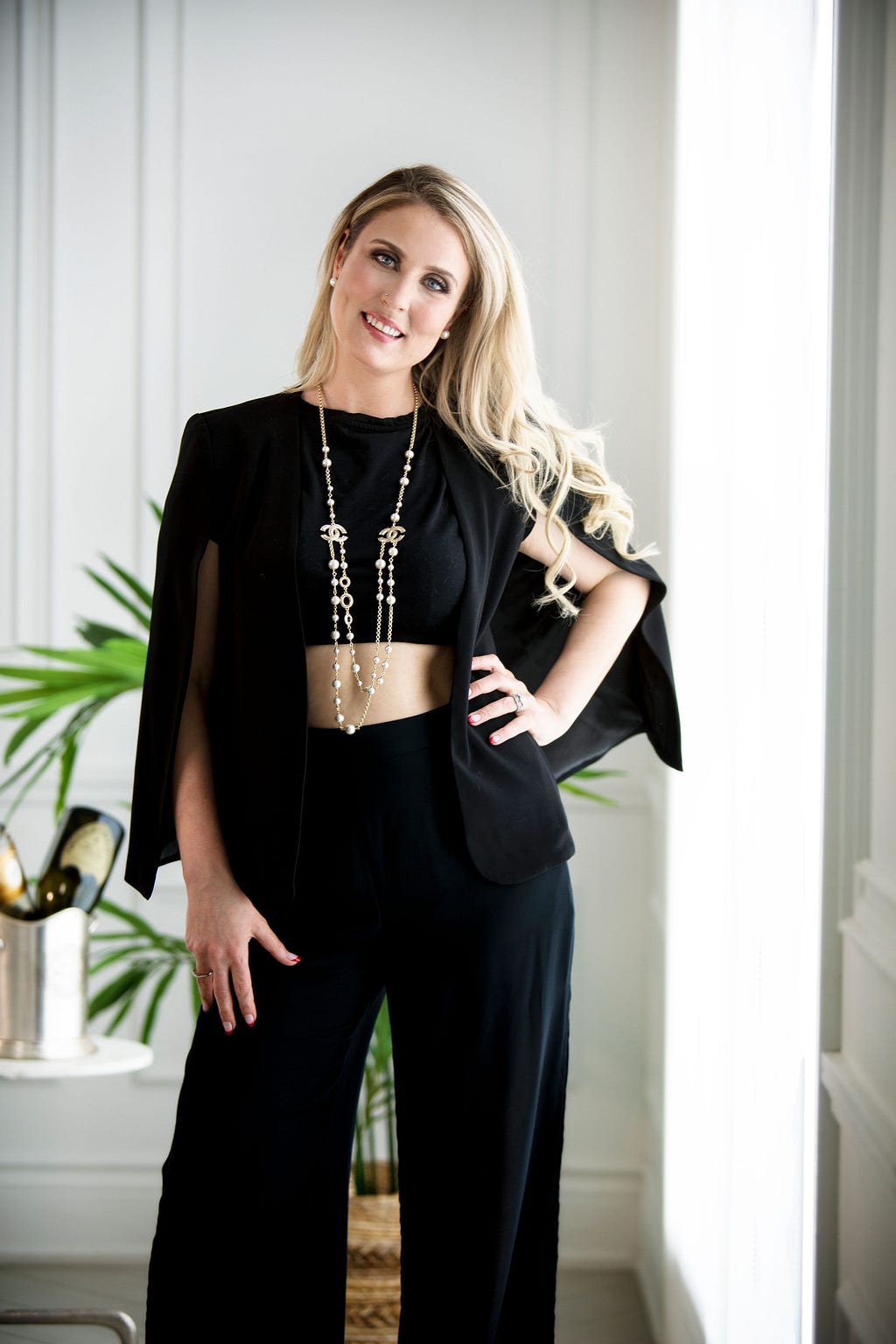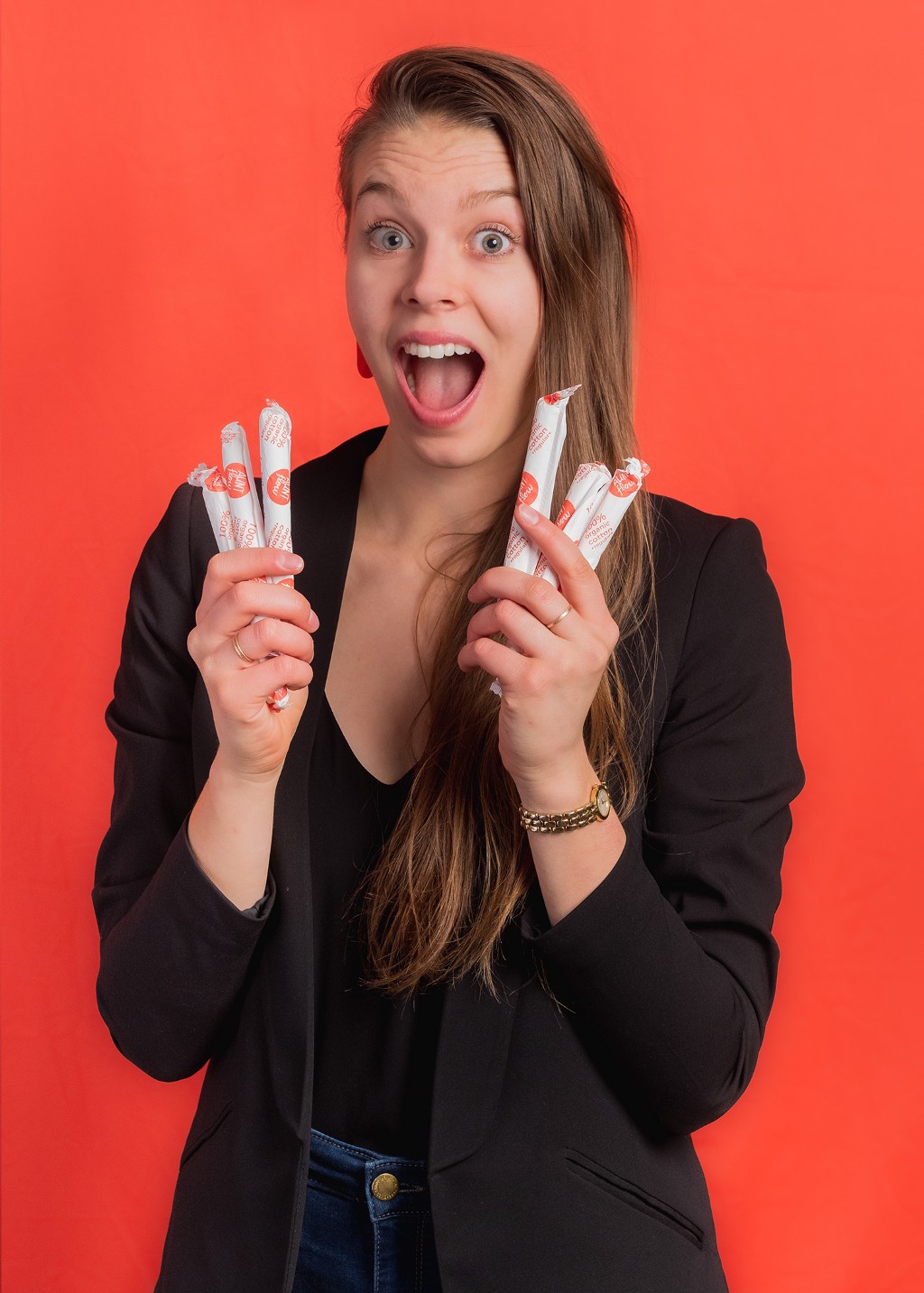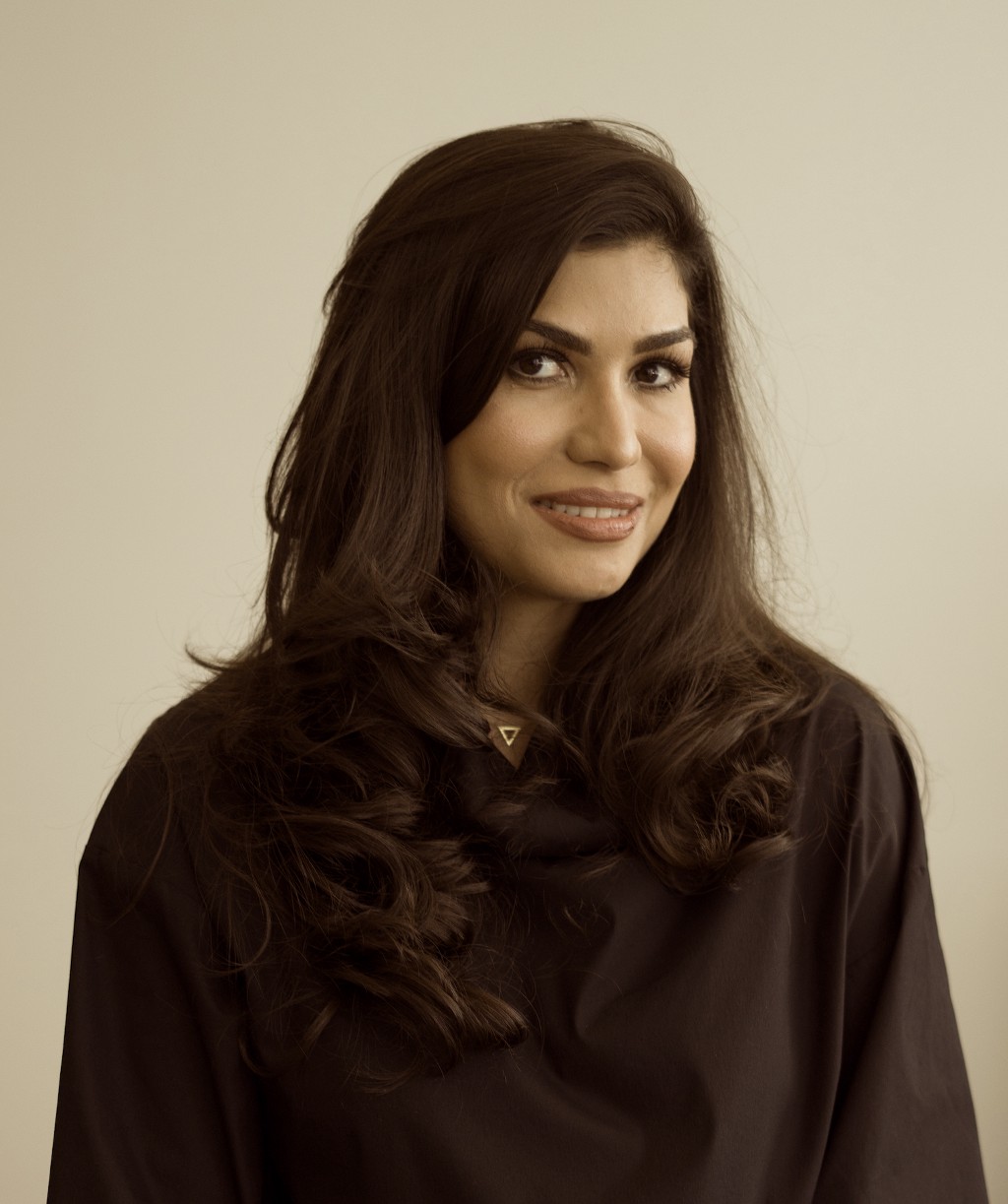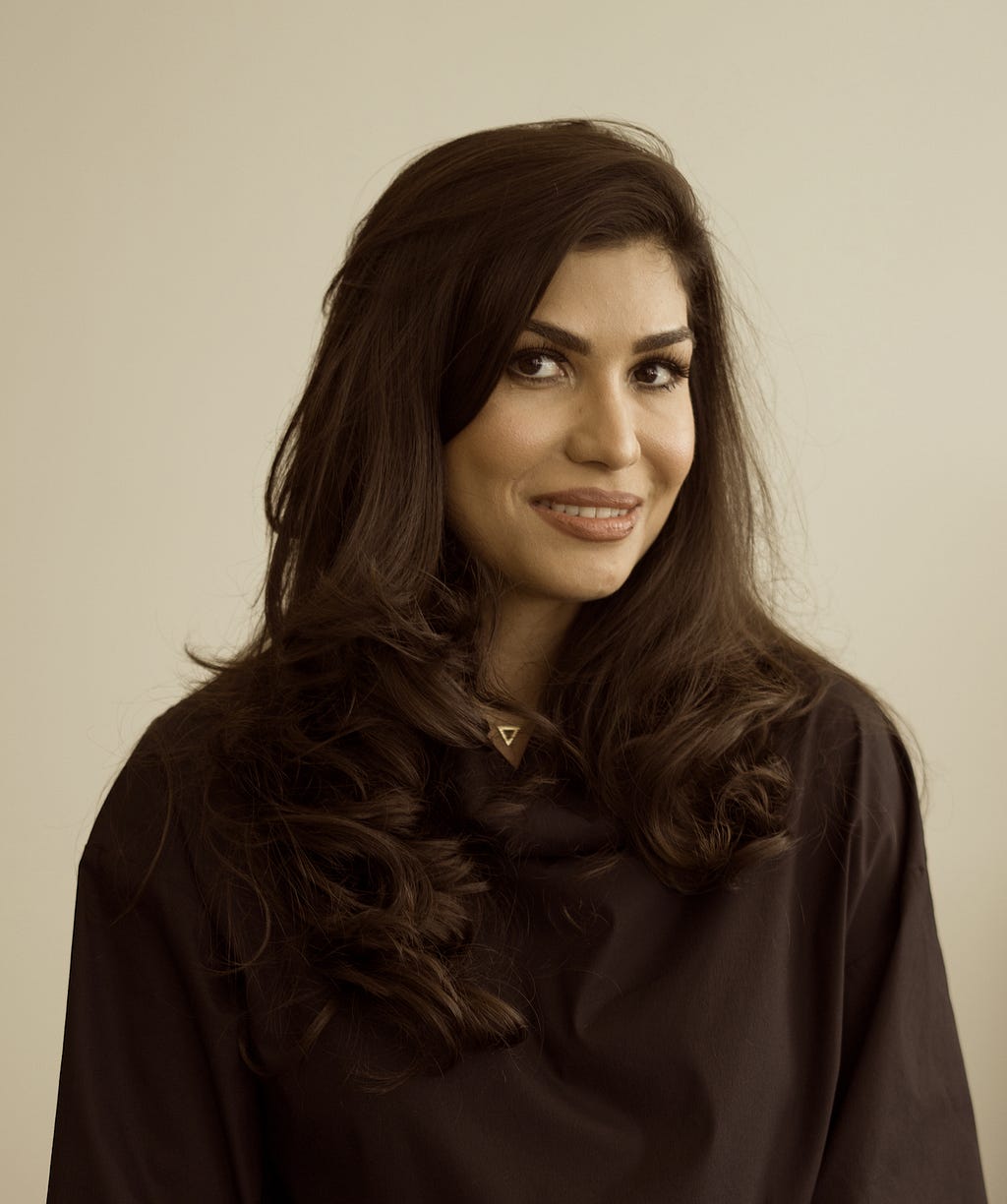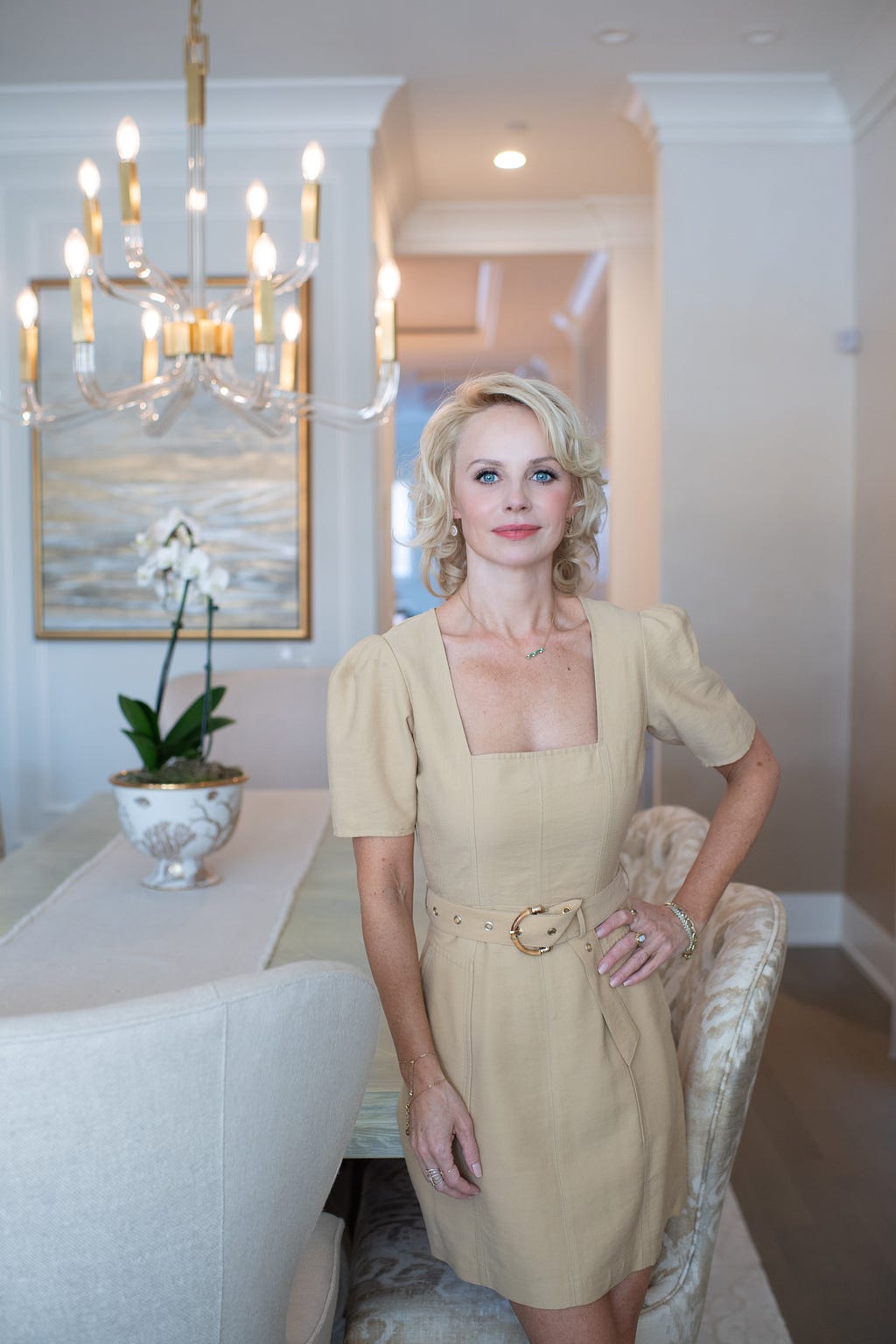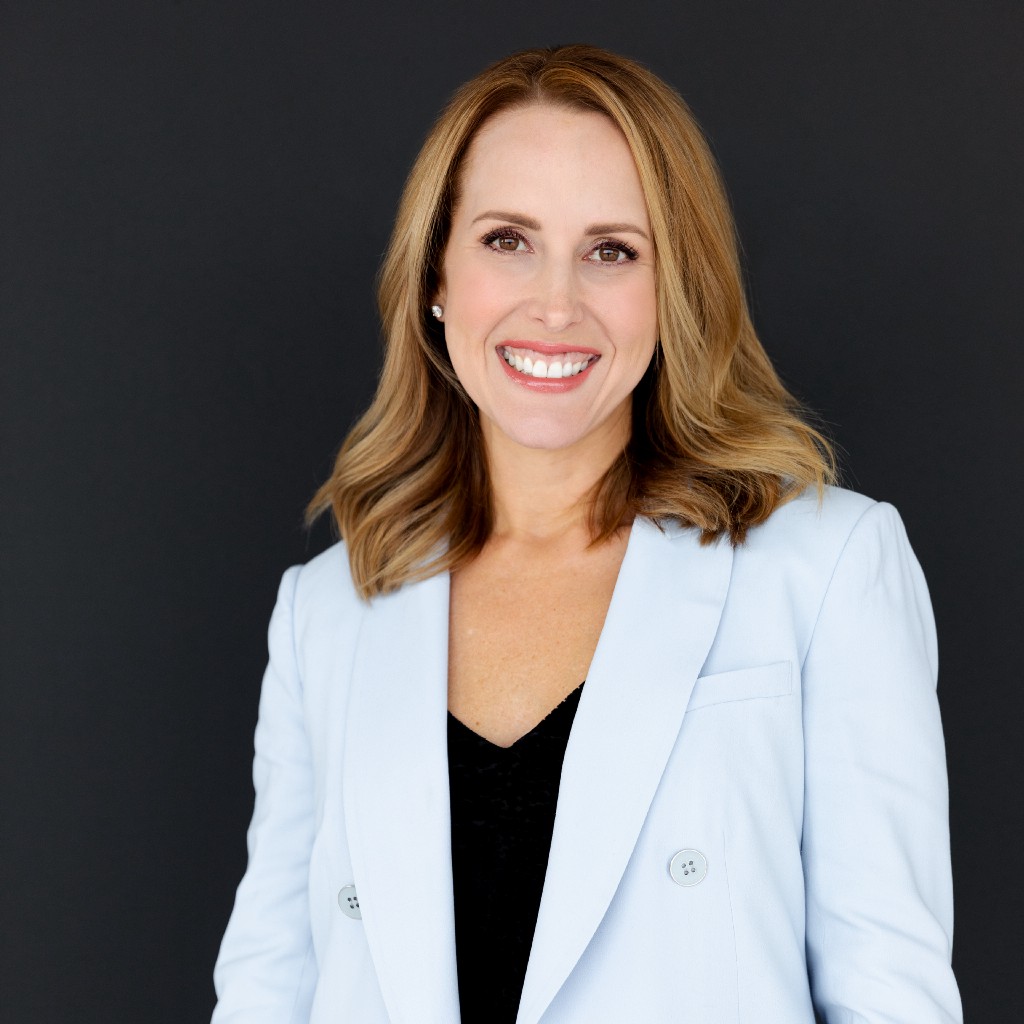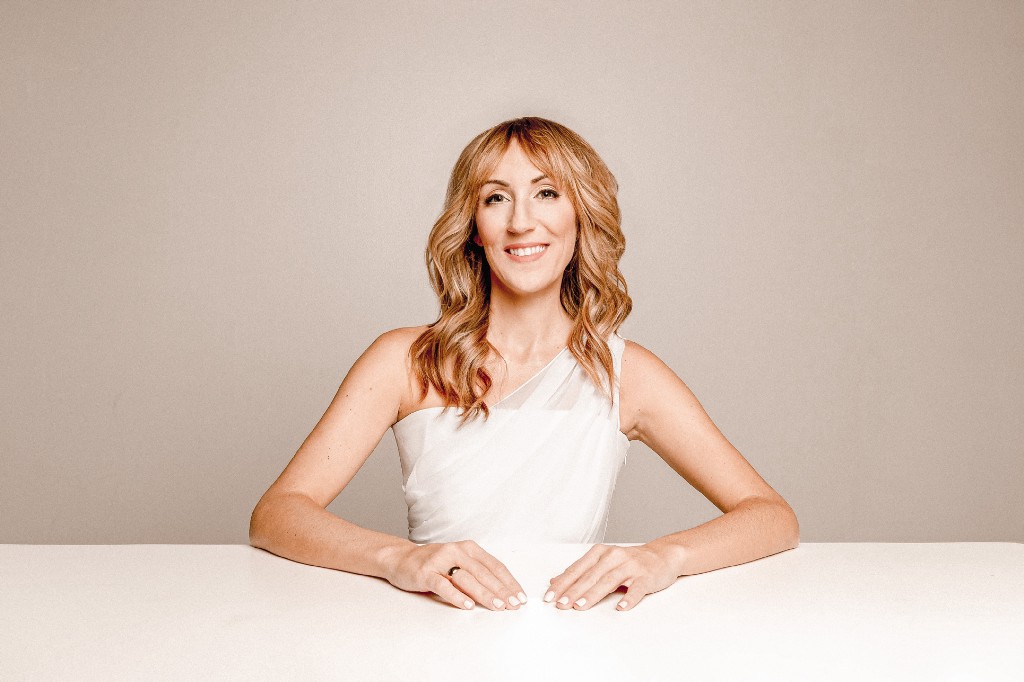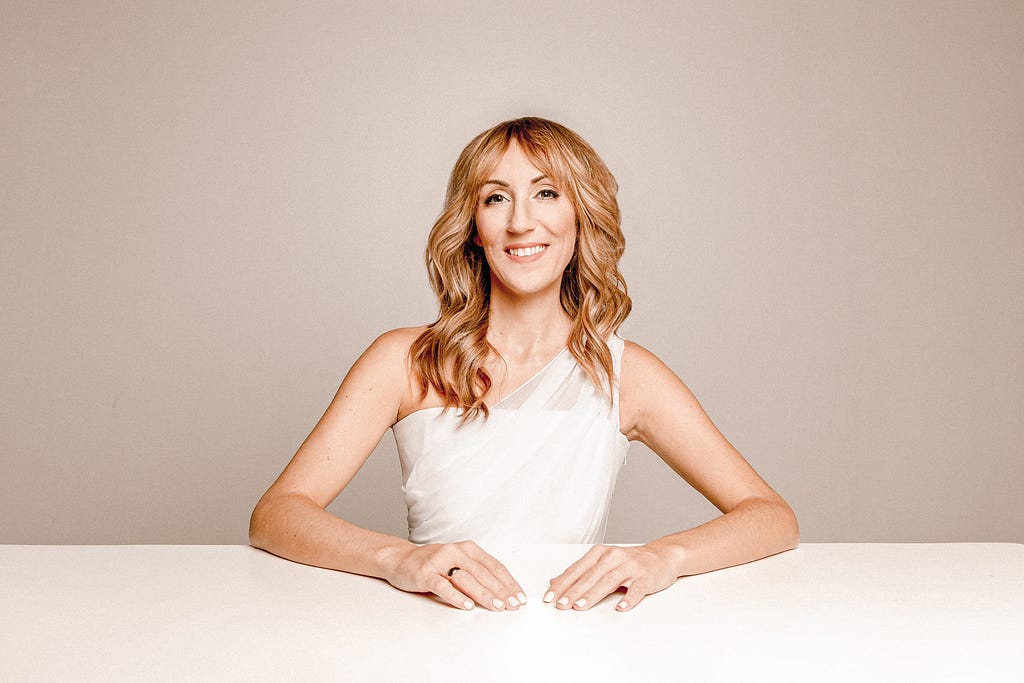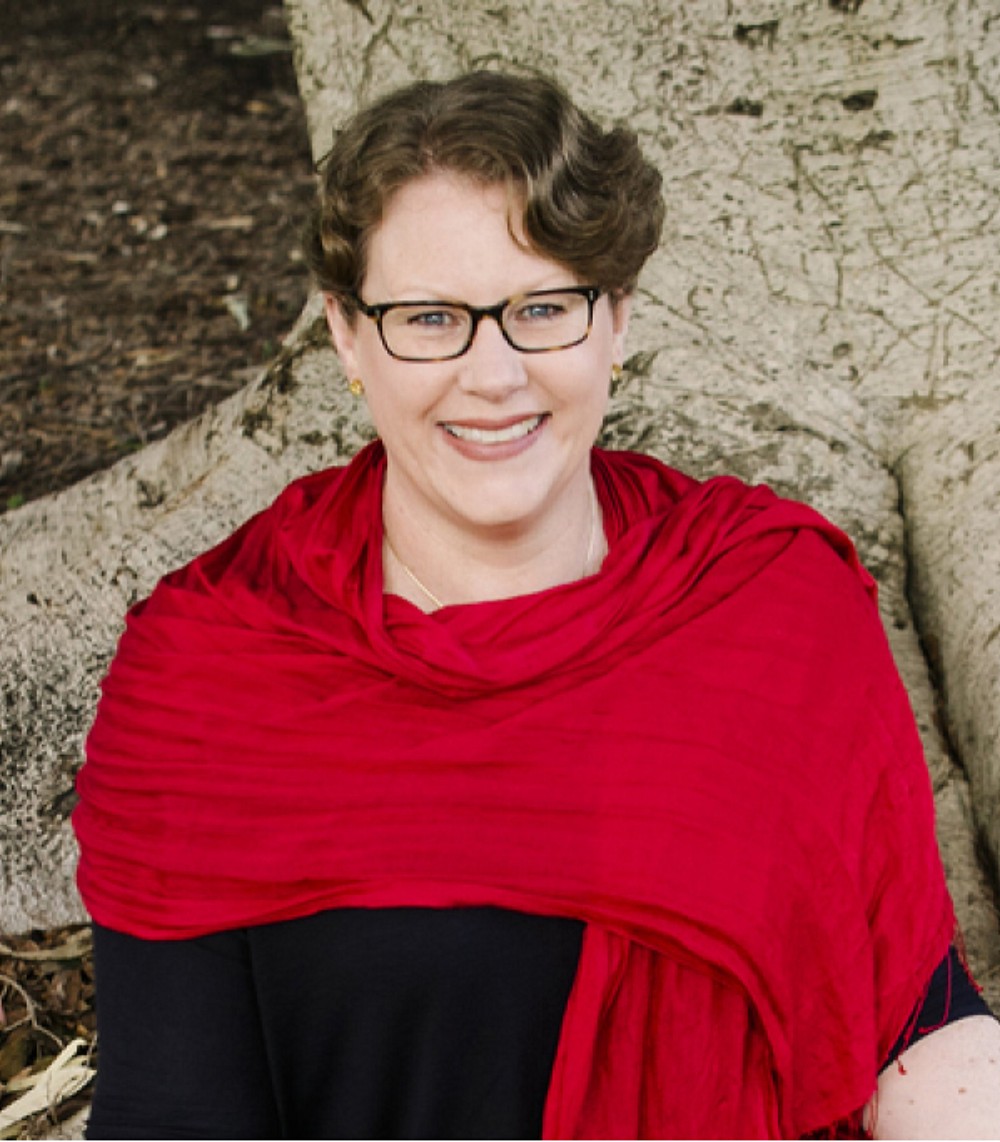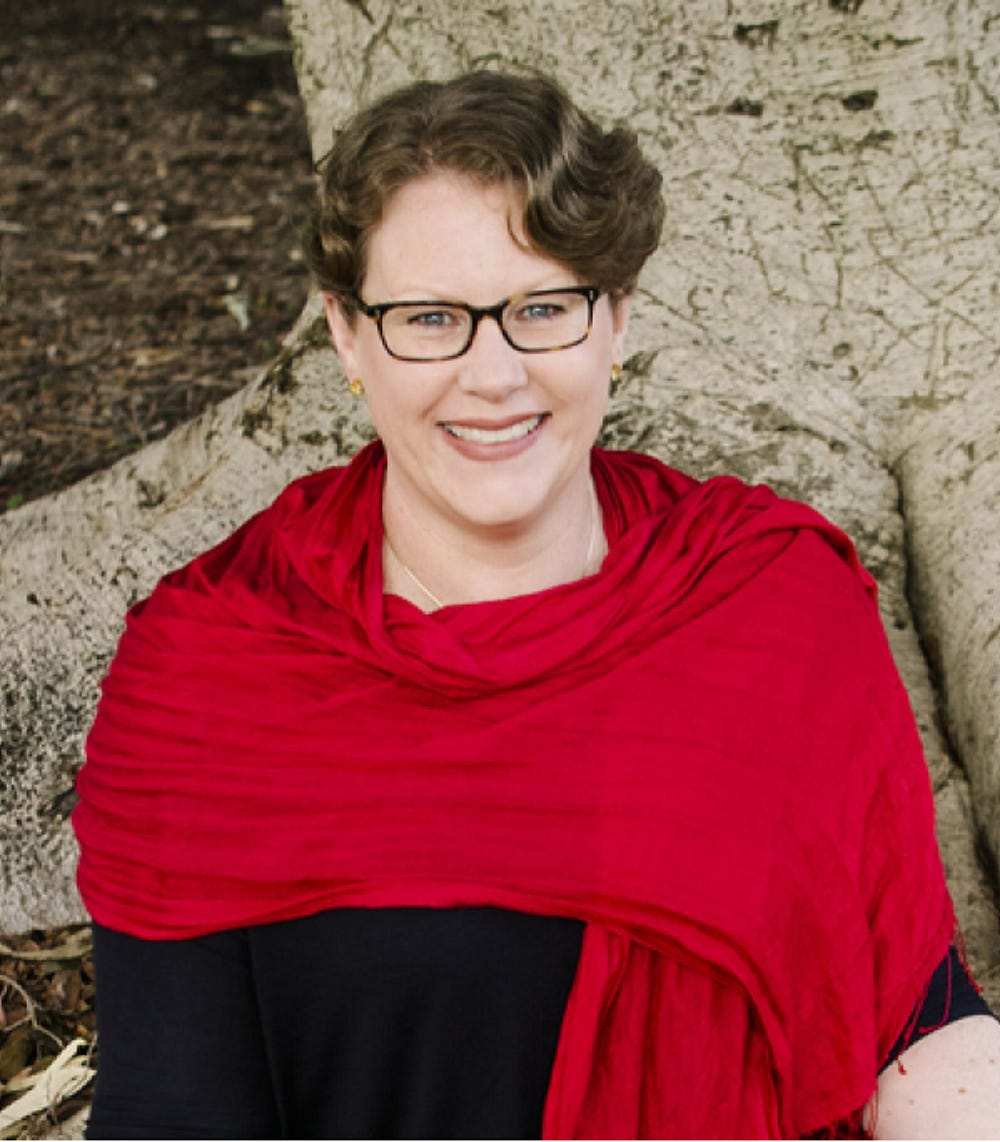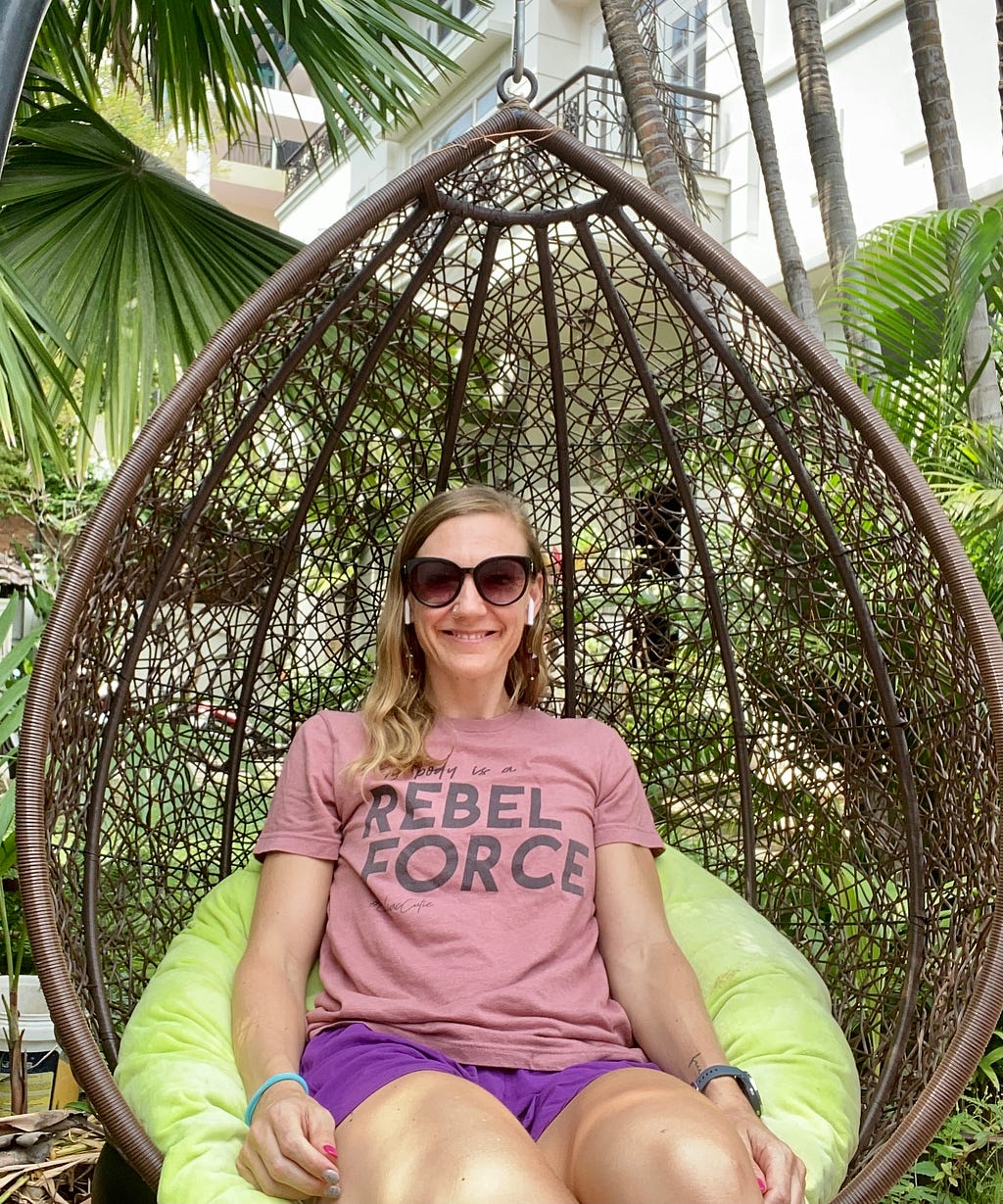Modern Fashion: Olivia Wallauer Gray of Circular Path On The 5 Things You Need To Lead a Successful Fashion Brand Today
An Interview With Candice Georgiadice

Be passionate. I think it is very important to find team members that are passionate about their line of work. There is an abundance of information on the internet and you can learn so much from research, but you can’t teach passion. All of our team members are very passionate about whatever aspect of the garment they work on, which helps create a positive working environment.
Many in the fashion industry have been making huge pivots in their business models. Many have turned away from the fast fashion trend. Many have been focusing on fashion that also makes a social impact. Many have turned to sustainable and ethical sourcing. Many have turned to hi tech manufacturing. Many have turned to subscription models. What are the other trends that we will see in the fashion industry? What does it take to lead a successful fashion brand today?
In our series called, “5 Things You Need To Lead a Successful Fashion Brand Today” we are talking to successful leaders of fashion brands who can talk about the Future of Fashion and the 5 things it takes to lead a successful fashion brand in our “new normal.”
As a part of this series I had the distinct pleasure of interviewing Olivia Wallauer Gray.
Olivia is a fashion merchandising graduate of Immaculata University. Olivia is guiding the startup, Circular Path, in its initial year, helping with sourcing, design, product development, and data analytics. She is excited to continue pursuing her career in fashion while also learning and incorporating sustainable practices into her work.
Thank you so much for doing this with us! Before we dig in, our readers would like to get to know you a bit more. Can you tell us a bit about your childhood “backstory”?
I grew up in a pretty small town in the suburbs of Philadelphia.I was always very interested in the arts and I was always in some type of art class whether it be sewing, painting or ceramics. A lot of the women in my family have also been very into the arts which is why I think it comes so naturally. I decided my junior year of high school that I wanted to pursue a career in fashion and later committed to Immaculata University.
Can you tell us the story about what led you to this particular career path?
I decided that I wanted to pursue fashion my junior year of high school. A college recruiter came and presented all of the different types of jobs that are in fashion — and I was introduced to so many new opportunities that I never knew about. I was shocked by all of this because I didn’t really have any plans on going to college to be honest. But once I researched a little more, I knew that is how I wanted to move forward. I really thrived at Immaculata and learned so much about the fashion industry, sustainability and business in general. I interned in a few different areas of the business and found that I needed to ultimately be in one of the creative departments. I also made some good connections while I was there, which is what led me to my current position.
Can you share the most interesting story that happened to you since you began your career?
I don’t necessarily have one story that sticks out to me, but I have learned so much in the past year and a half working in the industry. It’s very cool to be included in all the different aspects of the business, not just design. One really cool experience I had was working on one of the photoshoots that we did. I was the point person for the photoshoot and got to make a lot of decisions from hair and makeup to backdrops and poses to final photo selections. It was great to work hands on with models and the clothing I designed.
You are a successful business leader. Which three character traits do you think were most instrumental to your success? Can you please share a story or example for each?
Great question! I would say problem solving, drive and creativity. When working with a startup, there are always going to be hiccups in the plan, especially during a pandemic. You have to be able to adapt very quickly and figure out what is the best plan to work through whatever problem is in front of you. Drive is also critical when working for a startup. I have always been very career driven and want to give my best work at all times. Working as a freelancer/contractor, you have to be willing to work whenever you’re needed. Sometimes that’s a 6am meeting or an all day photoshoot that is dependent on you. I love what I do, so the drive for good work and high quality products comes naturally. Creativity is obviously crucial in a design position. I am constantly researching trends, touching fabrics, and educating my eye on design. Creativity does not always mean the arts, it can also be how to reach our audience in marketing, how to be sustainable in our practices, etc. There are so many traits needed to be a good business leader, and it’s rewarding to be constantly working towards being better.
What do you think makes your company stand out? Can you share a story?
There’s so many reasons that this company stands out to me. One, I began working during the pandemic which was challenging. There are a few contracted workers who are very good at their craft that I worked closely with. We worked together (from home) to help develop and create and bring a new brand to the marketplace while trying to be sustainable and being true to what that means. As we worked through designs, measurements and materials, we did not stray from high quality products and are committed to avoiding fast fashion.
Do you have a favorite “Life Lesson Quote”? Can you share a story of how that was relevant to you in your life?
“Flowers don’t grow without dirt” It’s weird as this may sound, I think this quote can relate to a lot of different things. You need to go through some tough times to make beautiful things. In relation to my work, the pandemic changed my life tremendously. I’m aware it could have been much worse and I feel for all those that were affected.
I had to finish my senior year in my childhood bedroom and life post-graduation terrified me. However, if it wasn’t for the pandemic and the connections I made while I was in school, I may have never landed this position.
Ok, thank you for that. Let’s now jump to the primary focus of our interview. Do you see any fascinating developments emerging over the next few years in the fashion industry that you are excited about? Can you tell us about that?
There is a lot surrounding sustainability practices. There are always new materials being used or made- whether it is from a company that collects extra fabric from factories, newly spun fabric from scraps, or the second hand business. I think these are all very interesting and there are opportunities to grow with each one.
Can you share how your brand is helping to bring goodness to the world?
I think this goes back to why our company stands out. We strive to be authentic and use high quality materials for our garments. We are a smaller niche brand with an authentic story that comes straight from all of us that work on the line. Our conversations as a team are always about improving and finding ways to be more sustainable, which benefits so many different aspects of the world.
Can you share with our readers about the ethical standards you use when you choose where to source materials?
As we source materials, we look for GRS (Global Recycled Standard) symbols and only work with mills that have that certification. All of our garments have those certifications and we are comfortable with the third party certification from a material standpoint. We also have our workplace conditions audited and are fully compliant to local law and our set of requirements. We strive to stay consistent and true to the world about our product.
Fast fashion has an advantage, that it is affordable for most people, but it also has the drawback that it does not last very long and is therefore not very sustainable. What are your thoughts about this? How does your company address this question?
We’ve gone through a lot of sample development and made sure that the trims on our products are recycled. We also have limited colorways and quantities so as to not over produce. In terms of trends, I make sure that I am adapting these trendy pieces to make something that will stay in style through many seasons and be able to be mixed and matched with other staples that the consumer may have. Sustainability does not only mean fabric content and working conditions, I think it also goes back to the consumer and how they decided to use their products to create a wardrobe that can last over time and can be customized to their specific style — without using all fast fashion pieces.
Thank you for all that. Here is the main question of our interview. What are your “5 Things You Need To Lead a Successful Fashion Brand”. Please share a story or example for each.
- Listen to consumers. By listening and knowing your consumer, you can create and manufacture products that they want and need. You are also able to market to them more efficiently and connect with them on a more personal level. When I first started creating the line, I made sure to not only look into the trends related to our target market, but I also looked through social media trends, brick and mortar stores, etc.
- Have strong values and brand identity. We value sustainability and we strive to make that the forefront of all our decisions. By having a strong aesthetic, high quality product and values, your consumer will align all of these things with your brand name as you grow. During product development, we had to make a decision where we had the opportunity to create a product that was a little cheaper, but did not have the highest amount of recycled materials — or — have a price point that was a little higher, but maintain our values with a higher percentage of recycled materials. We ultimately decided to go with the higher price point and stick with our sustainability values.
- Teamwork and communication. This allows daily operations to run smoothly and be able to identify issues if they come up. Our team had to stay on top of communication since we were mostly all working remotely. We often had weekly 6am meetings to go over any new developments, questions or ideas. I spoke with my technical designer several times a week making sure that we both stayed up to date on samples, measurements and any other updates.
- Business mindset. I love designing and all the creative things involved with it. However, it’s important to keep in mind that fashion is a business and you want to make sure to make decisions that will benefit the consumer as well as the business. For example, when I am creating a line, I have to make sure I am designing garments that will make sense for the business. These garments need to be practical, stylish and fit our target market while also being mindful of fabrics and trims so as to not exceed our price range. Creative decisions go hand in hand with business decisions, especially in a small business.
- Be passionate. I think it is very important to find team members that are passionate about their line of work. There is an abundance of information on the internet and you can learn so much from research, but you can’t teach passion. All of our team members are very passionate about whatever aspect of the garment they work on, which helps create a positive working environment.
Every industry constantly evolves and seeks improvement. How do you think the fashion industry can improve itself? Can you give an example?
I think the fashion industry could be more transparent and supportive in terms of sustainability and customer relations. A lot of companies claim to be sustainable, but don’t really value all the different ways to be sustainable as a company. There are so many ways to be sustainable as a consumer as well and I think more brands could highlight these different ideas. For instance, educate and inspire consumers on how to create a closet filled with garments that can be worn over and over again and styled in different ways. Brands could also talk more openly and honestly about the whole process of designing and manufacturing. Both of these things allow the consumers to understand a brand more while also creating a closer relationship with the customer.
You are a person of great influence. If you could start a movement that would bring the most amount of good to the most amount of people, what would that be? You never know what your idea can trigger. 🙂
Acceptance and authenticity. I think it is super important to include a range of diverse people in your work as a brand, without exploiting them. That could be in hiring a diverse team, models, marketing, and even influencers. Human connection is also so important, especially after years in a pandemic. Creating genuine connections with your consumer not only creates a welcoming environment, but also makes them feel seen and represented. I hope to see a the fashion industry grow into a welcoming, kind, authentic and accepting place.
How can our readers further follow your work online?
You can visit our website at circularpath.com and our social media pages are coming soon!
Thank you for these fantastic insights. We greatly appreciate the time you spent on this.
Modern Fashion: Olivia Wallauer Gray of Circular Path On The 5 Things You Need To Lead a Successful… was originally published in Authority Magazine on Medium, where people are continuing the conversation by highlighting and responding to this story.




